Filter by
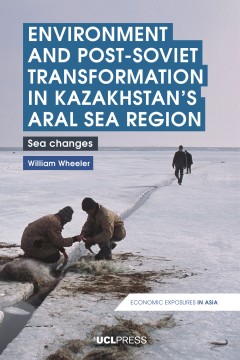
Environment and post-Soviet transformation in Kazakhstans Aral Sea region : s…
The Aral Sea is well known for its devastating regression over the second half of the twentieth century, and for its recent partial restoration. Environment and Post-Soviet Transformation in Kazakhstan’s Aral Sea Region is the first book to explore what these monumental changes have meant to those living on the sea’s shores. Following the fluctuating fortunes of the pre-Soviet, Soviet an…
- Edition
- -
- ISBN/ISSN
- 9781800080331
- Collation
- xx, 288p.; ill.
- Series Title
- -
- Call Number
- 304.209587 ENV w
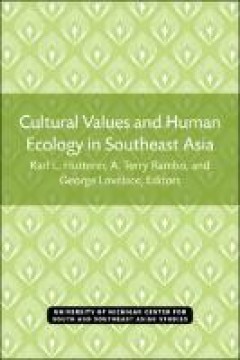
Cultural values and human ecology in Southeast Asia
Ecologists have long based their conceptual frameworks in the natural sciences. Recently, however, they have acknowledged that ecosystems cannot be understood without taking into account human interventions that may have taken place for thousands of years. And for their part, social scientists have recognized that human behavior must be understood in the environment in which it is acted out. Re…
- Edition
- -
- ISBN/ISSN
- 9780472902293
- Collation
- X, 417 p.
- Series Title
- Michigan Papers On South And Southeast Asia, 27
- Call Number
- 304.20959 CUL c
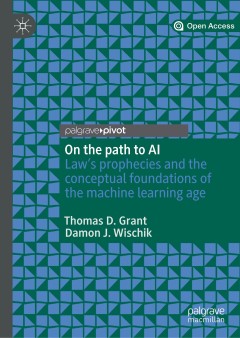
On the path to AI : law's prophecies and the conceptual foundations of the ma…
This open access book explores machine learning and its impact on how we make sense of the world. It does so by bringing together two ‘revolutions’ in a surprising analogy: the revolution of machine learning, which has placed computing on the path to artificial intelligence, and the revolution in thinking about the law that was spurred by Oliver Wendell Holmes Jr in the last two decades of …
- Edition
- -
- ISBN/ISSN
- 9783030435820
- Collation
- xxii, 147p. : ill.
- Series Title
- -
- Call Number
- 006.3 GRA o
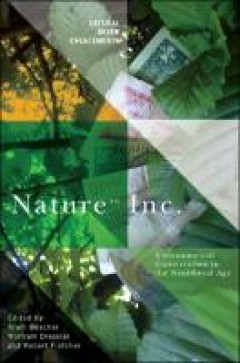
Nature Inc: environmental conservation in the neoliberal age
With global wildlife populations and biodiversity riches in peril, it is obvious that innovative methods of addressing our planet’s environmental problems are needed. But is “the market” the answer? Nature™ Inc. brings together cutting-edge research by respected scholars from around the world to analyze how “neoliberal conservation” is reshaping human–nature relations.
- Edition
- -
- ISBN/ISSN
- 9780816539215
- Collation
- 278 pages : illustrations ; 24 cm.
- Series Title
- Critical green engagements: investigating the green economy and its alternatives
- Call Number
- 363.7 NAT n
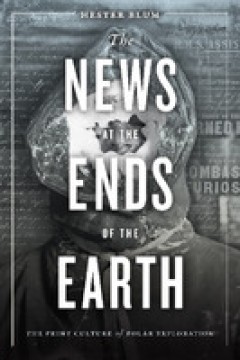
news at the ends of the earth: the print culture of polar exploration
From Sir John Franklin's doomed 1845 search for the Northwest Passage to early twentieth-century sprints to the South Pole, polar expeditions produced an extravagant archive of documents that are as varied as they are engaging. As the polar ice sheets melt, fragments of this archive are newly emergent. In The News at the Ends of the Earth Hester Blum examines the rich, offbeat collection of pri…
- Edition
- -
- ISBN/ISSN
- 9781478004486
- Collation
- 1 online resource.
- Series Title
- -
- Call Number
- 910.911 BLU n
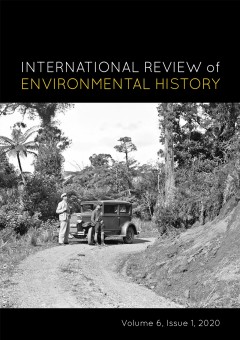
International review of environmental history : volume 6, issue 1, 2020
International Review of Environmental History takes an interdisciplinary and global approach to environmental history. It encourages scholars to think big and to tackle the challenges of writing environmental histories across different methodologies, nations, and time-scales. The journal embraces interdisciplinary, comparative and transnational methods, while still recognising the importance o…
- Edition
- -
- ISBN/ISSN
- 22053212
- Collation
- 125p. : ill.
- Series Title
- -
- Call Number
- 333.7 INT i
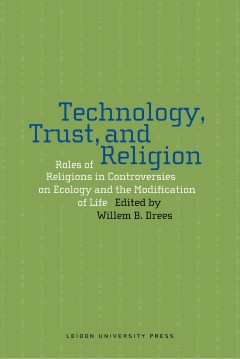
Technology, trust, and religion : roles of religions in controversies on ecol…
What does it mean to be human in a world of technology? What could be the role of religion in responding to the ecological crisis? Should we be concerned about the modification of food, and even of ourselves? Who do we trust to make decisions regarding our common future? What do we use our technology for? These are not questions for experts only. How can the wider public be involved? Do experts…
- Edition
- -
- ISBN/ISSN
- 9789087280598
- Collation
- 316p. : ill.
- Series Title
- -
- Call Number
- 200 TEC t
 Computer Science, Information & General Works
Computer Science, Information & General Works  Philosophy & Psychology
Philosophy & Psychology  Religion
Religion  Social Sciences
Social Sciences  Language
Language  Pure Science
Pure Science  Applied Sciences
Applied Sciences  Art & Recreation
Art & Recreation  Literature
Literature  History & Geography
History & Geography